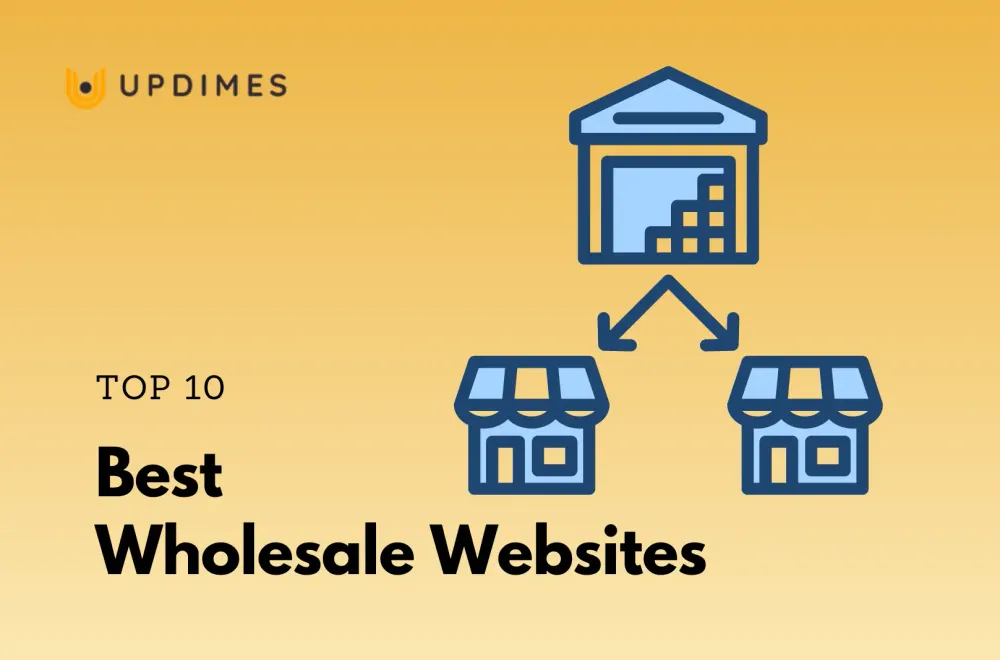10 Best Wholesale Websites

Wholesale websites offer a treasure trove of opportunities to source products at competitive prices. Whether you're a small business owner or a seasoned entrepreneur, finding the right wholesale platform can make all the difference in your success. In this comprehensive guide, we'll delve into the top 10 best wholesale websites, exploring their key features, advantages, and disadvantages to help you make informed decisions for your business.
10 Best Wholesale Websites
eBay
eBay is one of the largest online marketplaces in the world, connecting buyers and sellers from around the globe. While primarily known for its auction-style listings, eBay also offers a robust wholesale platform where businesses can buy products in bulk.
Key Features:
- Wide range of products across various categories.
- Both auction-style and fixed-price listings available.
- Seller ratings and reviews help assess reliability.
Pros:
- Extensive product selection.
- Flexible pricing options.
- Seller protection policies.
Cons:
- Competition can be stiff.
- Quality control may vary.
- Fees can eat into profits.
eSources
eSources is a UK-based wholesale directory and sourcing platform, connecting retailers with verified wholesalers, distributors, and manufacturers. With a focus on the UK market, eSources offers a curated selection of suppliers across various industries.
Key Features:
- Verified suppliers for added reliability.
- Advanced search filters for targeted sourcing.
- Educational resources and guides for businesses.
Pros:
- Tailored to the UK market.
- Transparent pricing and terms.
- Additional support for businesses.
Cons:
- Limited international suppliers.
- Smaller product selection compared to global platforms.
- Membership fees required for full access.
Worldwide Brands
In the second place is Worldwide Brands. This is a comprehensive directory of qualified dropshipping wholesalers and bulk suppliers. With over 20 years of experience, Worldwide Brands offers a curated list of suppliers, ensuring quality and reliability for businesses.
Key Features:
- Strict certification process for suppliers.
- Access to millions of items across various categories.
- One-time membership fee for lifetime access.
Pros:
- Verified suppliers for peace of mind.
- No ongoing subscription fees.
- Comprehensive training and support.
Cons:
- Higher membership fee compared to other platforms.
- Limited customization options for orders.
- Competition among members for products.
SaleHoo
SaleHoo is a popular wholesale directory and sourcing platform, connecting online sellers with trusted suppliers worldwide. With a focus on dropshipping and ecommerce businesses, SaleHoo offers a user-friendly interface and extensive supplier database.
Key Features:
- Verified suppliers vetted by SaleHoo's team.
- Product research tools for market insights.
- Community forums for networking and support.
Pros:
- Wide range of suppliers and products.
- Affordable membership fees.
- Educational resources and tutorials.
Cons:
- Intense competition among members.
- Limited customization options for orders.
- Some suppliers may have higher prices.
Alibaba
Alibaba is a powerhouse in the wholesale industry, providing a platform for you to connect with a lot of manufacturers and suppliers from China and beyond. With millions of products available, Alibaba offers unparalleled access to wholesale goods.
Key Features:
- Massive product database covering almost every imaginable category.
- Direct communication with suppliers.
- Trade Assurance program for secure transactions.
Pros:
- Low prices due to direct sourcing.
- Customization options for bulk orders.
- Escrow service provides financial security.
Cons:
- Language and cultural barriers may pose challenges.
- Quality control issues can arise.
- Minimum order quantities (MOQs) may be high.
1688.com
1688.com is a Chinese wholesale website owned by Alibaba Group, catering primarily to domestic businesses in China. While language barriers may pose challenges for international buyers, 1688.com offers access to a vast array of products at competitive prices.
Key Features:
- Extensive selection of products from Chinese manufacturers.
- Lower prices compared to Alibaba.
- Integration with Alibaba's logistics network.
Pros:
- Competitive pricing.
- Direct access to manufacturers.
- Seamless logistics integration.
Cons:
- Language barrier for non-Chinese buyers.
- Limited international payment options.
- Quality assurance may be lacking.
Ankorstore
Ankorstore is a wholesale platform connecting independent retailers with curated brands and designers across Europe. With a focus on unique and artisanal products, Ankorstore offers a refreshing alternative to traditional wholesale marketplaces.
Key Features:
- Handpicked selection of brands and products.
- Easy ordering process with fast shipping.
- Transparent pricing and terms.
Pros:
- Emphasis on quality and uniqueness.
- Dedicated customer support team.
- Flexible ordering and payment options.
Cons:
- Limited to European retailers and brands.
- Smaller product catalog compared to larger platforms.
- Less established compared to industry giants.
SeeBiz
SeeBiz is a B2B wholesale platform designed to connect businesses with verified suppliers and manufacturers. With features such as product showcases, RFQs (Requests for Quotation), and messaging capabilities, SeeBiz facilitates seamless communication and transactions between buyers and sellers.
Key Features:
- Product showcases for businesses to display their offerings.
- RFQ feature for streamlined procurement.
- Messaging and negotiation tools for easy communication.
Pros:
- Direct access to verified suppliers.
- Customizable storefronts for businesses.
- Secure payment processing.
Cons:
- Limited to B2B transactions.
- Smaller user base compared to larger platforms.
- Less established in the wholesale market.
Costco
Lying in the last place is Costco which is a membership-based warehouse club. It offers a wide range of products at wholesale prices to its members. While primarily known for its brick-and-mortar stores, Costco also operates an online platform where members can purchase bulk items conveniently.
Key Features:
- Membership-based pricing for exclusive savings.
- Diverse product selection, including groceries, electronics, and more.
- Online ordering with home delivery options.
Pros:
- Competitive pricing for members.
- High-quality products from reputable brands.
- Convenient online shopping experience.
Cons:
- Membership fees required for access.
- Limited product variety compared to specialized wholesale platforms.
- Bulk quantities may not be suitable for all businesses.
How Does Wholesale Business Work?
Wholesale business involves buying goods in large quantities from manufacturers or distributors at discounted prices or lower prices and then selling them in smaller quantities to retailers or consumers for a profit.
The process typically begins with the wholesale buyer researching and identifying products they wish to sell. They then negotiate prices and terms with suppliers, often in bulk orders, to secure the best possible deal. Once the goods are purchased, the wholesaler may store them in warehouses or distribution centers until they are ready to be sold.
Wholesalers then market their products to retailers or directly to consumers through various channels such as trade shows, online marketplaces, or their own storefronts. They may offer discounts or incentives to encourage retailers to buy in bulk.
Tips for Working with Wholesalers
Working effectively with wholesalers is essential for retailers and businesses looking to source products efficiently and profitably. Here are some tips to enhance your collaboration with wholesalers:
- Research and vet wholesalers carefully: Look for wholesalers with a solid reputation, reliable track record, and quality products. Verify their credentials, including licenses and certifications, to ensure legitimacy.
- Build strong relationships: Cultivate open and transparent communication with wholesalers. Establishing trust and rapport can lead to better deals, priority access to new products, and more flexible terms.
- Negotiate terms effectively: Negotiate pricing, payment terms, and minimum order quantities (MOQs) to align with your business needs. You should walk away if terms are unfavorable but strive for a mutually beneficial agreement.
- Understand product quality and specifications: Thoroughly understand the quality, specifications, and warranty terms of the products you're purchasing. Request samples or conduct product testing to ensure they meet your standards.
- Streamline logistics and fulfillment: Work closely with wholesalers to optimize logistics, shipping, and fulfillment processes. With efficient supply chain management, you can reduce costs and improve delivery times.
- Stay informed and adaptable: Keep abreast of market trends, pricing fluctuations, and changes in regulations that may impact your partnership with wholesalers. Remain flexible and adaptable to evolving circumstances.
Wrapping up,
In conclusion, the top best wholesale websites offer diverse opportunities for businesses to source products at competitive prices. By carefully considering factors like product selection, pricing, and reliability, you can make the correct decisions to choose the best product sources, optimize your sourcing strategies and drive growth.
